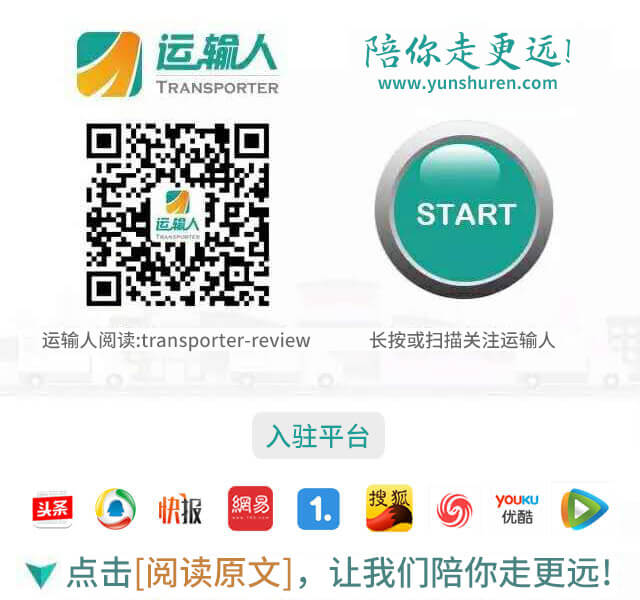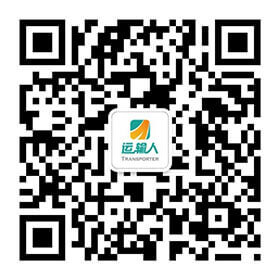Spare Parts > Wang Weiliang, President of the Board of Directors of Bosch Intelligent Transportation Systems China: Intelligent Mobility is the Inevitable Direction of the Future
Wang Weiliang, President of the Board of Directors of Bosch Intelligent Transportation Systems China: Intelligent Mobility is the Inevitable Direction of the Future
2024-05-08 08:00:00 Source:yunshuren.com




Piloting for 20 Years, Creating a New Era Together.2024 On April 25, Bosch Powertrain China presented a variety of intelligent mobility solutions for commercial vehicles at this year's Beijing Auto Show.

At the media meeting on April 27th, Mr. Wang Weiliang, President of the Board of Directors of Bosch Intelligent Transportation Systems China and President of Bosch Powertrain China, not only introduced Bosch Powertrain China's 20 years of development since the establishment of Bosch Automotive Diesel Systems Co., Ltd. in 2004, but also explained in detail the business layout, the latest progress, and the development trend of each segment of commercial vehicle powertrain.
In particular, he revealed that on May 1, 2024, Bosch will set up the Commercial Vehicle Group to strengthen cross-domain cooperation and provide full-stack technology solutions for commercial vehicles.
Technology Innovation Leads to Green Mobility
With the increasing global emphasis on sustainable development, Bosch Intelligent Transportation Systems is actively exploring the application and development of alternative powertrain. Mr. Wang Weiliang, President of Bosch, said that alternative powertrain includes methanol powertrain, hydrogen internal combustion engine, etc. These technologies not only help reduce carbon emissions, but also improve energy utilization efficiency.

Bosch Common Rail Engine Injection
He particularly emphasized the two types of sources of methanol and the great potential of hydrogen as hydrogen fuel cells and hydrogen internal combustion engines. In particular, Bosch's first presentation of lubrication-free hydrogen direct injection technology heralded a major breakthrough in the application of hydrogen energy. He revealed that the technology is expected to be put into mass production next year.
In the field of electric vehicles, Bosch not only provides 48V Generation 2 and 12V batteries, but also introduces highly integrated and efficient motor electronic control solutions for light commercial vehicles. With silicon carbide technology and highly integrated technology, Bosch aims to enhance the competitiveness of its motor electronic controls to ensure technology leadership, efficiency benchmarking, and cost competitiveness.
In addition, Bosch also produces or supports customers to produce highly integrated heavy-duty electric drive axle solutions, aiming to solve the problems of space occupation and inefficiency of traditional central drive solutions. Wang Weiliang said, "In the increasingly fierce competition in China's EV market, we insist on rolling up according to competitiveness and innovation rather than a mere price war. Because if the price war can't form a supply system with innovation ability and strong efficiency, the result is bound to be failure."
At the meeting, Wang Weiliang also told reporters in detail about Bosch Power's industrialization process and market promotion plan in the field of hydrogen fuel cells.
Since the establishment of the dual centers in Chongqing and Wuxi in 2021, the production capacity of Bosch Hydrogen Power Systems has been growing rapidly, from 70 units in 2021 to 1,000 units in 2023, and 5,000 units are planned to be produced this year.
Bosch is promoting the widespread application of hydrogen fuel cell technology through comprehensive adaptive development and promotion in cold chain logistics, intercity and long-distance logistics, and sanitation vehicles in Beijing, Tianjin, Wuxi, Hefei and Chongqing.
Wang Weiliang also introduced a model application case focusing on intra-city reverse short-distance logistics, which has made a significant breakthrough in energy efficiency, reducing the energy cost of a single vehicle by 31% while increasing the application rate by 7.5%. On how this energy efficiency improvement of up to 30% was achieved, he said, "It can't be done with a single product. "The design of the electric drive axle contributes about 15 percent of the efficacy in reducing energy costs, while the electric stack is able to support a 7-8 percent drop in energy consumption at the current state of the art.
The real key also lies in the fact that Bosch has combined these two components by means of super thermal management technology and further optimized the efficiency of the electric drive bridge. This comprehensive optimization strategy results in a significant increase in overall efficiency, enough to improve efficiency by more than 30 percent compared to the best applications on the market today. This innovative technology integration solution undoubtedly brings more efficient and environmentally friendly travel options to the inner-city short-distance logistics industry.
Localized Development for Sustainability
With the rapid development of China's automotive industry and the acceleration of internationalization, safety performance requirements are also increasing. Since January 1, 2020, China has officially implemented the mandatory Electronic Barometric Steering (EBS) regulations for commercial vehicle safety, a milestone that marks a new level of safety standards for commercial vehicles.
Although a large number of trucks on the market have a nominal top speed of less than 90 kilometers per hour, Bosch is actively promoting the local development, production and manufacturing of EBS technology for safety reasons and to meet the needs of the export market," said Weiliang Wang.
According to Wang Weiliang, EBS, as an advanced electronic control system, plays a crucial role in enhancing the safety performance of commercial vehicles. EBS realizes more precise steering control, faster braking response and higher driving stability through electronic control, which are significant advantages that make EBS an indispensable and key configuration for modern commercial vehicles. He predicts, "E-braking systems for commercial vehicles in China will see a big development by 2026."
Bosch is always committed to providing customers with the most advanced and reliable products and solutions. In the field of EBS, Bosch will continue to increase investment in R&D and promote technological innovation and product upgrading. Wang Weiliang firmly believes that with the continuous maturity of Bosch's EBS technology and the expansion of its application scope, the safety performance of Chinese commercial vehicles will be further improved. At the same time, he also calls on other enterprises in the industry to pay attention to the improvement of commercial vehicle safety performance and jointly promote the healthy and sustainable development of China's commercial vehicle industry.
The year 2024 coincides with the 20th anniversary of Bosch Powertrain Ltd. and 20 years of Bosch serving the Chinese commercial vehicle market. Wang Weiliang said, "After 20 years, Bosch Powertrain China has always been rooted in China, customer-centered, innovation-centered, and value-creating for our customers, empowering the high-quality development of China's automotive industry."
As a pioneer in the field of intelligent mobility, Bosch will actively participate in the process of intelligent mobility and jointly shape a new era of smarter, more efficient and environmentally friendly mobility.
 Save
Save





 EN
EN

